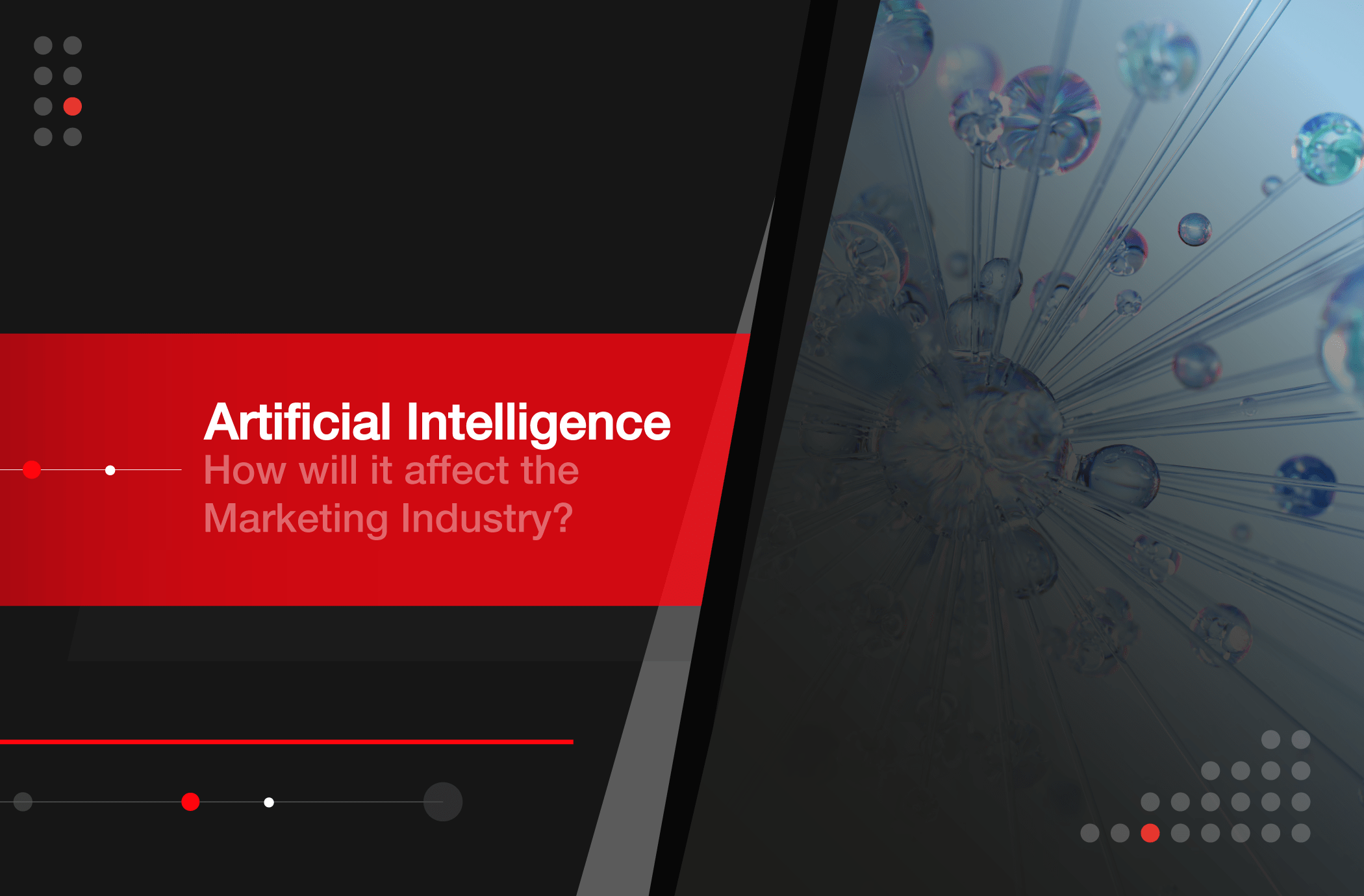
How Will AI Affect The Marketing Industry?
What is Artificial Intelligence (AI)?
To put it simply – AI uses data and technology to mimic functions of the human brain, such as problem-solving, decision-making, and even recognising emotions.
Tools such as ChatGPT have recently blown up on social media, and due to popularity and intrigue, more and more people are becoming aware of what AI is and how they can use it in everyday life.
So how can this modern technology be useful to marketers? And are there any potential setbacks to introducing AI into your marketing strategy?

AI and SEO
The SEO world is always changing. With constant new updates by search engines such as Google and new technology being released all the time, introducing an automated tool such as AI into the mix can significantly impact the way things are done.
SEO is data-driven – analysing and interpreting all of the relevant information can be very time-consuming, even when using tools such as Google Analytics. AI enables you to process and sort large amounts of data in an unbelievably short space of time, making AI-based technologies a fantastic asset to SEO marketers everywhere.
AI has the ability to:
- Predict how your website rankings will be affected by various factors
- Complete thorough and automated competitor analysis
- Identify causes of ranking drops and quickly solve the issue
We can almost hear SEO marketers cheering everywhere…
Google favours human content over AI-generated content, and not taking this into consideration could have disastrous effects on your SEO strategy. Recent updates from Google mean that content gets cross-referenced against high-quality search results to look for duplicate or similar content, and will be penalised accordingly.
Automated generated content actually goes against the webmaster guidelines, and ‘content created primarily for search engine rankings, however it is done, is against guidance’ (Google Search Liaison, 2023)
There’s also the risk of plagiarism, which, as well as being unethical, could include phrases and wording from other sources without proper attribution – which could mean trouble for your brand!

AI and Content Creation
A bit more controversially, artificial intelligence is also now being used to help write content across a range of channels.
From press releases, blog posts and social media copy to newsletters, website copy, emails, product descriptions on e-commerce sites and even] audio and video content – the clever tool can create a huge range of content that has the potential to be useful within the marketing industry.
Although it sounds like a great idea, many marketers disagree with the use of AI to create content due to the understanding that it’s not classed as ‘original’ content and is essentially like cheating the system, which makes sense until you learn how it really works.
These tools don’t pull content out of anywhere and still need human input. Marketers can put in tone of voice, descriptions, and draft ideas and then generate the content for them.
A lot of people are also concerned that since the content hasn’t been written by a human person, it won’t sound natural and will take away the authenticity behind a brand.
However, engines such as Chat-GPT use extremely smart artificial intelligence that focuses on helping computers understand how humans write and speak. While they don’t actually understand what a word means – they learn how they’re used in writing by using statistics and learning tools to index words, phrases, and sentences. They can even be used to write code and learn from questions that you ask to create in-depth responses.
The danger of using AI to write content, no matter what format it’s in, is the risk of sounding the same as everybody else. As a marketer, that’s the last thing you want – our job is to stand out from the crowd. As mentioned above, there’s also the risk of plagiarism, as there’s no sure way to check every bit of content to see where it’s been sourced from and whether it’s been cited properly.
AI and Design
Another (perhaps controversial) use for AI is in a design role.
A number of AI applications which are capable of automating designs are already floating around. For example, Designs.ai states that it’s able to create ‘anything online in 2 minutes’, including logos and brochure designs.
Some argue that tools such as this take away the value of a designer’s role, which is often complex, and creative and delivers impressive results. To an extent, it does make sense, as how can anything created in two minutes be as good as something which may take a designer hours, if not more?
The large downfall of AI is that it lacks the human touch. A huge point of marketing is to evoke emotion from the consumer, and computer-generated content just can’t do that the same way a human designer can.
AI is great, however, for speeding up the design process, providing inspiration and even inspiring initial drafts.
Need help with your marketing? Get in touch and we’ll be happy to help!



